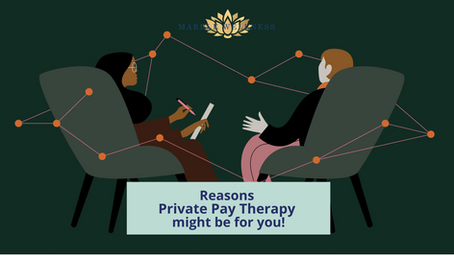A lot of people feel overwhelmed as they begin to pursue therapy. Here is a brief guide to therapy in Chicago’s West Loop, with information and support for anyone facing uncertainty as a first-time therapy client.
Even the process of scheduling your first session can be daunting. You may find that the places you identify are fully booked several months out but you needed to start yesterday; some places can’t accept your insurance; some places are open but none of the available practitioners seem like a good fit; the list goes on.
Don’t let this deter you from finding your way to therapy – you can do it!
We’ll talk about where to begin, and then how to begin.
Finding potential therapists in Chicago, IL and beyond:
Identifying the actual type of therapy you need is step 1. There are various types of therapists and modalities. You may connect with a licensed social worker, licensed professional counselor, psychologist, cognitive-behavioral therapy (CBT), psychotherapy, family therapy, and more. Take some time to research different therapy approaches to determine which one might be best suited to your needs. You can search therapists that specialize in areas that meet your needs as well. Most online directories such as Psychology Today, TherapyDen, and GoodTherapy allow you to filter your search for zip code, insurance, gender, ethnicity, and specific areas of therapy such as addiction and substance abuse, LGBT+ affirming care, eating disorder therapy, grief counseling, PTSD treatment, and so on.
Don’t be afraid to ask for help or recommendations from friends, family, and healthcare professionals.
Considering logistics before beginning therapy:
Before booking an appointment, consider logistics such as location, availability, and cost. Choose a therapist whose location is convenient for you, whose schedule aligns with yours, whose practice offers telehealth if needed, etc. Find out about the cost of sessions and whether the therapist accepts (your) insurance, if applicable. Or, if your therapist is private pay only, in order to avoid session limits and diagnosis constraints. If you plan to use insurance, be sure to cross reference with your provider to avoid potentially having to start over again!
Reaching out, asking your therapist questions:
Contact the therapists you’re interested in to inquire about their services and availability. You can do this by phone or email. Some therapists offer a consultation or intake process to discuss your needs and determine if they’re a good fit. During your initial contact with the therapist, don’t hesitate to ask questions to ensure they meet your previously researched needs. Some questions you might consider asking include:
- What is your approach to therapy?
- What experience do you have in treating [specific issue]?
- What are your fees and payment options?
- Do you accept insurance, and are you in-network with my insurance provider?
- What is your availability for appointments?
- Do you offer in-person or telehealth sessions?
Booking and preparing for your first therapy session:
Once you’ve found a therapist who meets your criteria and feels like a good fit, schedule your first appointment. Confirm the date, time, location (if in-person), and any other relevant details. Before your first session, take some time to prepare yourself mentally. Think about what you’d perhaps like to discuss with the therapist, and any goals you have for therapy. It’s also important to approach the session with an open mind and be willing to engage in the therapeutic process.
Your first session will involve some “get to know you” conversation, and your therapist will likely inquire about what brings you to therapy. You don’t have to have perfect responses, as this session serves primarily to identify broad goals and areas.
Remember that finding the right therapist may take some time, so don’t be discouraged if you don’t find the perfect fit right away. Keep exploring options until you find a therapist who you feel comfortable with and who can provide what you need.
It can be difficult to start therapy for a variety of reasons, but the process of finding a therapist that works for your individual needs, identities, goals, financial situation, and schedule has become marginally easier over time with telehealth opportunities, insurance options, and detailed search filters.
Start Therapy in Chicago’s West Loop
Remember, therapy is a process with obstacles and victories throughout, all of which contribute to your growth. Getting started can feel like a lot, but it is a significant step toward feeling better. If you live in Chicago and are ready to improve your ability to set boundaries, we are here to help. We’ve got convenient hours, a lovely therapy location in the West Loop, and of course, we’re happy to meet you virtually with online therapy in Chicago. Let us know how we can help YOU thrive.
Contact Us!

Additional Counseling Services at Marble Wellness in St. Louis, MO and Chicago, IL
Counseling services are designed to help set you on a path of living a more fulfilled, calm, and happy life.
St. Louis Therapy Services
Our St. Louis team of therapists has a variety of training backgrounds and areas of expertise. We specialize in anxiety, depression, grief, chronic illness, therapy for men, couples, and maternal overwhelm. Also, our practice also helps new moms with various postpartum concerns, moms in the thick of parenting, and moms with teens. We can also chat from wherever you are in the state with online therapy in Missouri and online therapy in Illinois. No matter where you are in your journey, we would love to support you.
Chicago’s West Loop Therapy
Our Chicago team of therapists offers a wide range of mental health services to help our clients through the different challenges and hurdles in their lives. In addition to anxiety, depression, grief, therapy for men, and maternal overwhelm, we specialize in professional burnout, therapy for breakups, and love partnering with working moms.



